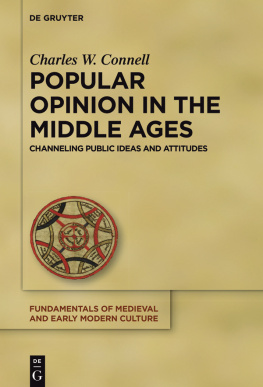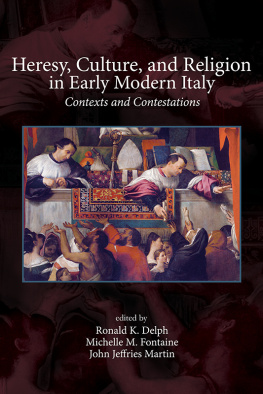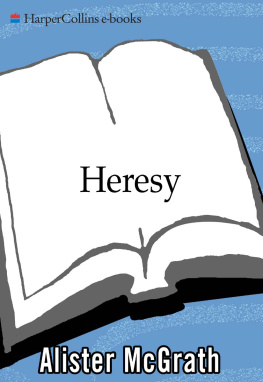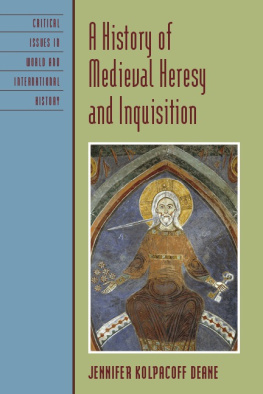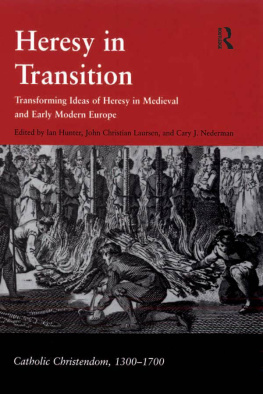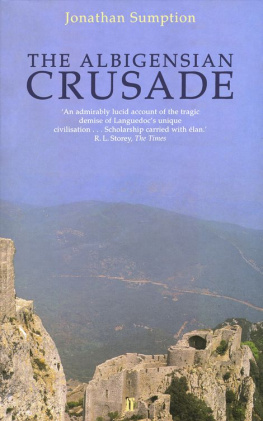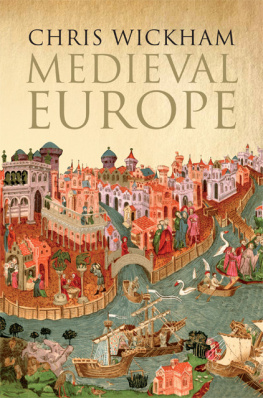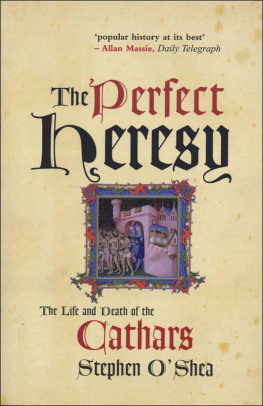THE WAR
on HERESY
Beautifully written, measured, searching, and sublimely free from jargon. We are presented with eye-witness accounts that are not knocked into pre-conceived patterns. The effect is to draw the reader into not just the story but into how the story became a story in the first place. Ren Weis, author of The Yellow Cross: The Story of the Last Cathars, 12901329
With admirable clarity, Moore tells the deeply troubling story of how heretics became a persecuted minority, not so much because of their beliefs, but because of the anxieties, needs, and ambitions of their persecutors. This is a masterfully researched and deeply thought book that tells its exciting and still relevant story with verve and with sympathy for the victims of the war on heresy. Anders Winroth, author of The Conversion of Scandinavia: Vikings, Merchants, and Missionaries in the Remaking of Northern Europe
A grand and sane book: wherever Moore ventures, he illumines what had been dark. James Simpson, author of Idolatry and Iconoclasm
ALSO BY R. I. MOORE
The Birth of Popular Heresy
The Origins of European Dissent
The Formation of a Persecuting Society
The First European Revolution, c. 9701215
THE WAR
on HERESY
Faith and Power in Medieval Europe
R. I. MOORE

First published in Great Britain in 2012 by
PROFILE BOOKS LTD
3A Exmouth House
Pine Street
London EC1R 0JH
www.profilebooks.com
Copyright R. I. Moore, 2012
1 3 5 7 9 10 8 6 4 2
Printed and bound in Great Britain by
Clays, Bungay, Suffolk
The moral right of the author has been asserted.
All rights reserved. Without limiting the rights under copyright reserved above, no part of this publication may be reproduced, stored or introduced into a retrieval system, or transmitted, in any form or by any means (electronic, mechanical, photocopying, recording or otherwise), without the prior written permission of both the copyright owner and the publisher of this book.
A CIP catalogue record for this book is available from the British Library.
ISBN 978 1 84668 196 7
eISBN 978 1 84765 348 2
The paper this book is printed on is certified by the 1996 Forest Stewardship Council A.C. (FSC). It is ancient-forest friendly. The printer holds FSC chain of custody SGS COC-2061

For Elizabeth
CONTENTS
LIST OF MAPS
LIST OF ILLUSTRATIONS
Colour plates
heretics. From the first Bible moralise, Vienna National Library, Cod. Vindobonensis 1179, med. 171 rd
Black and white plates
While every effort has been made to contact copyright-holders of illustrations, the author and publishers would be grateful for information about any illustrations where they have been unable to trace them, and would be glad to make amendments in further editions.
PREFACE
Old men often reflect on the errors of their youth and are seldom given the opportunity to correct or (alas) to repeat them. If, as I hope, this book does more of the former than the latter, it is almost entirely thanks to the students, colleagues (known and unknown) and friends who have read, written and argued about heresy in general and my heresies in particular for more than forty years. During that time, as the Afterword explains, the scholarly basis of our knowledge of medieval heresy has been transformed to such an extent that the whole story now needs to be retold, and its significance rethought, from the beginning.
The growth of heresy and accusations of heresy in Europe between 1000 and 1250 is the backdrop for some of the most spectacular and portentous events in medieval European history the Albigensian Crusade, which subjected what is now the southern part of France to the French monarchy, persecution and mass burnings, the foundation of the papal inquisition. It is a story not only interesting for modern Europeans but also central to our history. It prompts serious questions that we still need to ask ourselves about how we got here and where we are going. I have therefore concentrated on the positive tasks of telling what happened and why, and making clear my reasons for thinking so. Conversely, I have tried as far as possible to avoid the distraction (both for myself and the reader) of pointing out when and why I differ from my predecessors and colleagues, as I do repeatedly and often fundamentally. Such explanation is, of course, essential for scholars and scholarly purposes. It may be found, with a full academic apparatus, bibliography and references, at www.rimoore.net.
I have incurred specific and often heavy debts for answering questions, pointing to and even providing materials, and commenting on ideas and portions of draft to Stuart Airlie, Christine Caldwell Ames, Scott Ashley, Alan Bernstein, Jean-Louis Biget, Peter Biller, Christopher Brooke, Caterina Bruschi, Niall Campbell, Kate Cooper, John Gillingham, Bernard Hamilton, Edmund King, Robert Lerner, Anne E. Lester, Conrad Leyser, David Luscombe, Gerald Moore, Olivia Moore, Richard Moore, Claire Taylor, Bruce Venarde, John O. Ward and Anders Winroth. Hilbert Chiu and Monique Zerner have allowed me, with the greatest generosity, to make use of their unpublished and fundamental work. Maureen Miller has read several chapters, corrected many errors and taken pains to educate my eyes and ameliorate my ignorance of Italy. She has also been immensely helpful in identifying and securing illustrations. Ren Weis has read the whole book with a far better sense than mine of the readership I hope to reach. Mark Pegg has lived with it for almost as long as I have. It owes more than I can count to his learning and unstinting support at every point and in every way above all, in time and in comradeship. To draw once again on the expertise and unfailing encouragement of John Davey has been a constant pleasure, as has been every aspect of being published by Profile.
It need hardly be said that none of these is in any degree responsible for my errors and opinions. Neither is A. E. Redgate, who has devoted countless painful hours to making my prose accessible. The dedication acknowledges much else besides.
R. I. Moore
February 2012
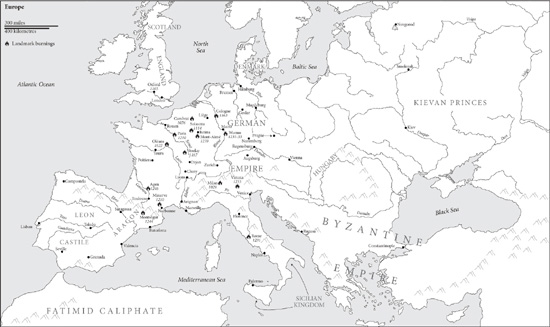
Prologue
DEATH AND A MAIDEN
It is always disturbing when intelligent people seriously talk nonsense The hardest things to understand about much of the past are its errors and delusions.
J. M. Roberts
In the year 1163 some heretics of the sect of the Cathars came to Cologne from Flanders and stayed secretly in a barn near the city. But when they did not go to church on Sunday they were found out by their neighbours. They were brought before the church court and thoroughly examined about their sect. When they would not be corrected by sound arguments and stubbornly maintained their position, they were summarily expelled from the church and handed over to the lay court. On 5 August four men and a girl were taken outside the city and burned. The girl would have been saved by the sympathy of the people if she had been frightened by the fate of her companions and accepted better advice, but she tore herself from the grasp of those who were holding her, threw herself into the flames and was killed.
Next page

